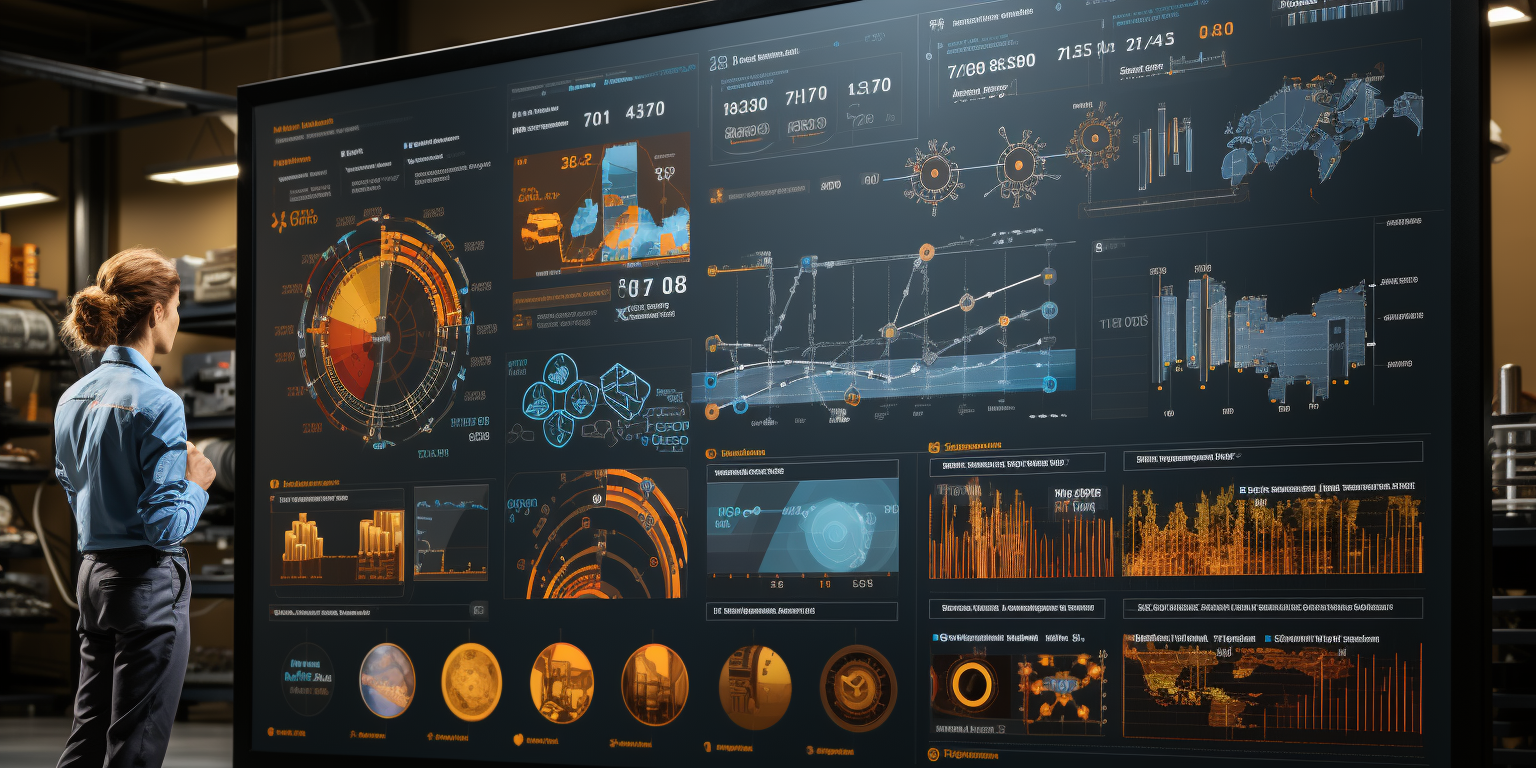ERP software for builders is a comprehensive business management solution specifically designed for the construction industry. Functioning as an integrated platform, this software facilitates the seamless synchronization of data across various departments. The primary objective is to optimize efficiency by managing and automating processes such as project management, accounting, procurement, and inventory control in alignment with industry-specific needs.
The software encompasses tools that cater to the unique challenges and complexities faced by builders and contractors. From handling vast datasets including job cost analysis, budget tracking, and change order management, ERP systems empower individuals in the building industry to make data-driven decisions. Real-time access to project information helps in effectively steering construction projects according to plan, while maintaining cost-efficiency and ensuring timely completion.
As the construction sector evolves, leveraging technology such as ERP software becomes vital. Its ability to integraThe software encompasses tools that cater to the unique challenges and complexities faced by builders and contractors. contour operations, project lifecycle management, and regulatory compliance consolidates various aspects of construction management into a single streamlined workflow. This facilitates a more immersive overview of organizational operations, allowing builders the ability to forecast with greater accuracy and plan strategically for future growth.
Content:
- Streamlining Construction Efficiency with ERP Software
- The Role of ERP Software in Flawless Construction Project Managment
- Driving Change in the Construction Realm with Layered ERP Solutions
- How ERP Software has Revolutionized Construction Project Management
- Leveraging ERP Software in Construction Projects: Steering towards Optimum Productivity
In today’s dynamic construction landscape, leveraging cutting-edge solutions is not an option, but a necessity for builders. This is where ERP (Enterprise Resource Planning) software for builders comes into the picture, not only revolutionizing the traditionally manual processes but also introducing unmatched organizational capabilities. The industry’s surge towards digital transformation mandates a closer look at how ERP systems are rewriting the rules of construction management.
This kind of software stands as a beacon of technological integration, offering builders an agile and motion toolset to face the industry’s evolving demands. Traditional approaches are often inadequate to tackle modern wellness scenarios – here is where ERP software acts as an both a shield and a catalyst. With such a system at their disposal, builders’re capable of emphasizing greater controlApproval over project-specific intricacies that usually dictate the success of their ventures.
Streamlining Construction Efficiency with ERP Software
Incorporating ERP software into construction processes has fundamentally altered the industry’s landscape. The tools provide a comprehensive snapshot of operations, which is indispensable for timely decisions. ERP’s centralized data hub facilitates workflow assessment, cementing the vital axis of project efficiency. In turn, this allocates resources effectively where they are needed most, avoiding costly mismanagement. By streamlining procurement, scheduling, and reporting, such platforms considerably reduce the manual burden.
Robust ERP systems offer real-time tracking of resources, enhancing accountability across the board. This transforms how materials and manpower are orchestrated, ensuring optimal allocation. Dependencies on paper trails diminish as digital records ascend. This swift access to data aids managers in adjusting plans swiftly to prevent any project derailing. Moreover, ERP’s scalability adjusts to various project sizes, proving its versatility in the industry and adaptability to a myriad of scenarios.
Forecasting becomes less of a gamble with the predictive prowess of ERP systems. Budgeting and financial planning gain a layer of precision, mitigating the risks of overspending. By aggregating historical data, the software anticipates cost fluctuations and potential delays. This informed forecasting funnels into wiser, more economic project management decisions. Compliance tracking is also integrated, keeping projects within legal boundaries effortlessly.
Employee productivity sees a significant boost with ERP-inspired workflows. The systems clarify roles and expedite communication, essentially elevating team synergies. Task assignments and progress tracking become streamlined, driving efficiency up the ranks. With resources orchestrated harmoniously, teams meet deadlines with a reduced incidence of burnout. The software’s mobile access further bolsters productivity, allowing for on-the-go management and updates.
Environmentally, ERP software reduces the construction industry’s carbon footprint. Digitalizing operations cuts down on paper waste substantially, endorsing a greener approach. Additionally, by optimizing resource utilization, less waste is generated onsite, contributing to more sustainable practices. ERP software, in its essence, becomes not just an operational tool, but a conduit for more environmentally-conscientious construction methods, marrying efficiency with stewardship of the planet.
The Role of ERP Software in Flawless Construction Project Managment
In an era where precision is key, ERP software emerges as a sentinel of flawless project management. The construction industry benefits from its unparalleled ability to integrate various modules. These include finance, HR, inventory, and project management, which work cohesively to perpetuate a streamlined workflow. Increased visibility across operations allows for quick identification and rectification of any process inefficiencies.
With the granular insights provided by ERP systems, project managers can pilot their tasks with exceptional clarity. The tool’s project tracking capabilities ensure that each phase progresses as planned. This avoids any aberrations that might cascade into costly delays and ensures adherence to predetermined timelines. Crucially, ERP software enables a proactive approach, allowing potential issues to be addressed before they materialize into larger problems.
Communication barriers dissolve with ERP’s collaborative frameworks. The immediacy of information exchange fortifies project alignment, ensuring each team member is abreast of changes or updates. This synergy is pivotal in maintaining the rhythm of progress and preventing disconnects that could derail a project. Real-time dashboards further empower stakeholders with actionable intelligence, sharpening their ability to steer projects effectively. ERP Software for Builders
ERP systems enhance risk management within construction projects by exposing potential pitfalls. The ability to scrutinize every aspect of the project lifecycle under one umbrella diminishes oversight chances. Such vigilance is invaluable in construction, where risks can translate into significant monetary and time losses. ERP’s integrated approach ensures a protective gaze, enveloping the project in a shield of foresight.
In conclusion, ERP software is indispensable in sculpting flawless project trajectories. It harmonizes intricate project facets into a unison of productivity and precision. By leveraging a sturdy ERP infrastructure, construction companies refine their project management mastery, assuring superior results. This isn’t simply technology at work—it’s a strategic ally reshaping the very conception of efficiency and success in construction project management.
Driving Change in the Construction Realm with Layered ERP Solutions
Pushing the boundaries of traditional construction management, layered ERP solutions usher in a new era of efficiency. Their tiered structure appeals to both granular tasks and overarching strategic decisions. Such ERP systems are customizable, adapting to a myriad of project complexities with graceful agility. Their feature-rich layers encompass varying needs, from resource allocation to compliance monitoring, under one seamless interface.
Each ERP stratum is designed to harmonize with the next, offering a cohesive suite of tools. Scheduling becomes an orchestrated symphony rather than a cacophony of misaligned tasks. Equipment and labor are positioned where needed, preventing idleness or resource shortages that stifle progression. Layered ERP solutions facilitate such precision, morphing the traditional construction approach into an optimized workflow.
Addressing current trends, these ERP solutions integrate emerging technologies such as AI and machine learning. This innovation influx provides data analysis at a level previously unattainable, predicting patterns and prescribing course adjustments. With intelligent analytics, constructions sites transform into data-informed environments, driving productivity through informed decision-making. This technology incorporation is crucial in maintaining a competitive edge in a rapidly evolving industry.
Change management is a cornerstone within these ERP ecosystems. They foster an environment ripe for evolution, enabling construction entities to pivot with market demands. Adoption is eased through intuitive interfaces and extensive support, minimizing resistance to new practices. Such flexibility is not a luxury but a necessity, as the construction industry is subject to frequent fluctuations in both technology and market dynamics.
Conclusively, layered ERP solutions are the catalysts for unparalleled change in construction. They blend the nuts and bolts of day-to-day operations with the strategic foresight required for long-term triumph. As construction firms embrace these multi-layered systems, they are not just adopting software; they are ushering in a renaissance of efficiency, redefining the standards of success in their domain.
How ERP Software has Revolutionized Construction Project Management
ERP software has catalyzed a revolution in construction project management, steering it towards a digital frontier. By incorporating a myriad of functionalities, it has decommissioned older, less efficient practices. The centralized database at its core negates the need for disparate systems, streamlining decision-making processes. With all project data housed in a single repository, cross-referencing information is simplified, bolstering operational fluency. ERP Software for Builders
The ripple effects of this digital transformation are evident in the drastic reduction of errors. By automating tasks like billing and procurement, ERP software nullifies the risk of human error that once plagued manual entries. This automation also paves the way for a more strategic use of human resources, shunting routine work to the digital realm. As a result, skilled workers can focus on more critical tasks that necessitate human discernment.
Another aspect where ERP software shines is in regulatory compliance. Construction projects are often governed by a tight scaffold of regulations. ERPs ease the burden of maintaining compliance by tracking regulatory changes and aligning project parameters accordingly. This vigilance is an invaluable feature, especially considering the costly repercussions of non-compliance in the construction sector.
ERP software also reshapes customer relations within the construction industry. Real-time project insights can be shared with clients, fostering trust and transparency. This opens a dialogue between builders and clients that wasn’t as fluid before. Client satisfaction takes precedence, with project modifications communicated and incorporated swiftly, often with just a few clicks.
In sum, ERP software has instigated a paradigm shift within construction project management. Efficiency has soared, errors have dwindled, and the fluidity of communication has become the norm. It has given rise to a more informed, collaborative, and adaptable construction process, signifying an era where technology and management converge in a symphony of progress.
Leveraging ERP Software in Construction Projects: Steering towards Optimum Productivity
ERP software in construction projects is no longer a luxury but a linchpin for optimum productivity. Its integration reaches deep into the operational veins, ensuring that each project segment operates at peak efficiency. This leverage is critical in an industry where margins are often tight and the impact of any inefficiency is magnified. By embracing ERP, construction firms align themselves with a trajectory of streamlined success.
From tendering to the final nail, ERP software ensures that all stages proceed without a hitch. The automated workflow management features orchestrate every component, eliminating downtime and bottlenecks. This coordinated effort maximizes the use of time and resources. Additionally, with integrated financial tracking, budget adherence is always at the forefront, leaving little room for fiscal derailment.
The leveraged connectivity offered by ERP bridges the gap between on-site activities and back-office functions. Real-time data exchange allows project managers to have a pulse on on-site developments without being physically present. This intertwining of on- and off-site operations sets the scene for a more responsive management style, one that adapts dynamically to emerging challenges. ERP Software for Builders
ERP systems serve as a comprehensive platform addressing the project lifecycle holistically. Risk management modules, for instance, highlight potential issues before they snowball. By identifying risks early, measures can be taken preemptively, ensuring projects remain on track. The strategic foresight imparted by ERP systems instills a culture of preparedness within the organization.
Inespitably, adopting ERP software has become synonymous with steering construction projects towards optimal productivity. This technology not only improves project delivery but also revolutionizes how the industry perceives success. As construction entities continue to leverage ERP systems, they chart a course threaded with efficiency, reliability, and high-quality outcomes, culminating in an exemplary standard for project execution.



